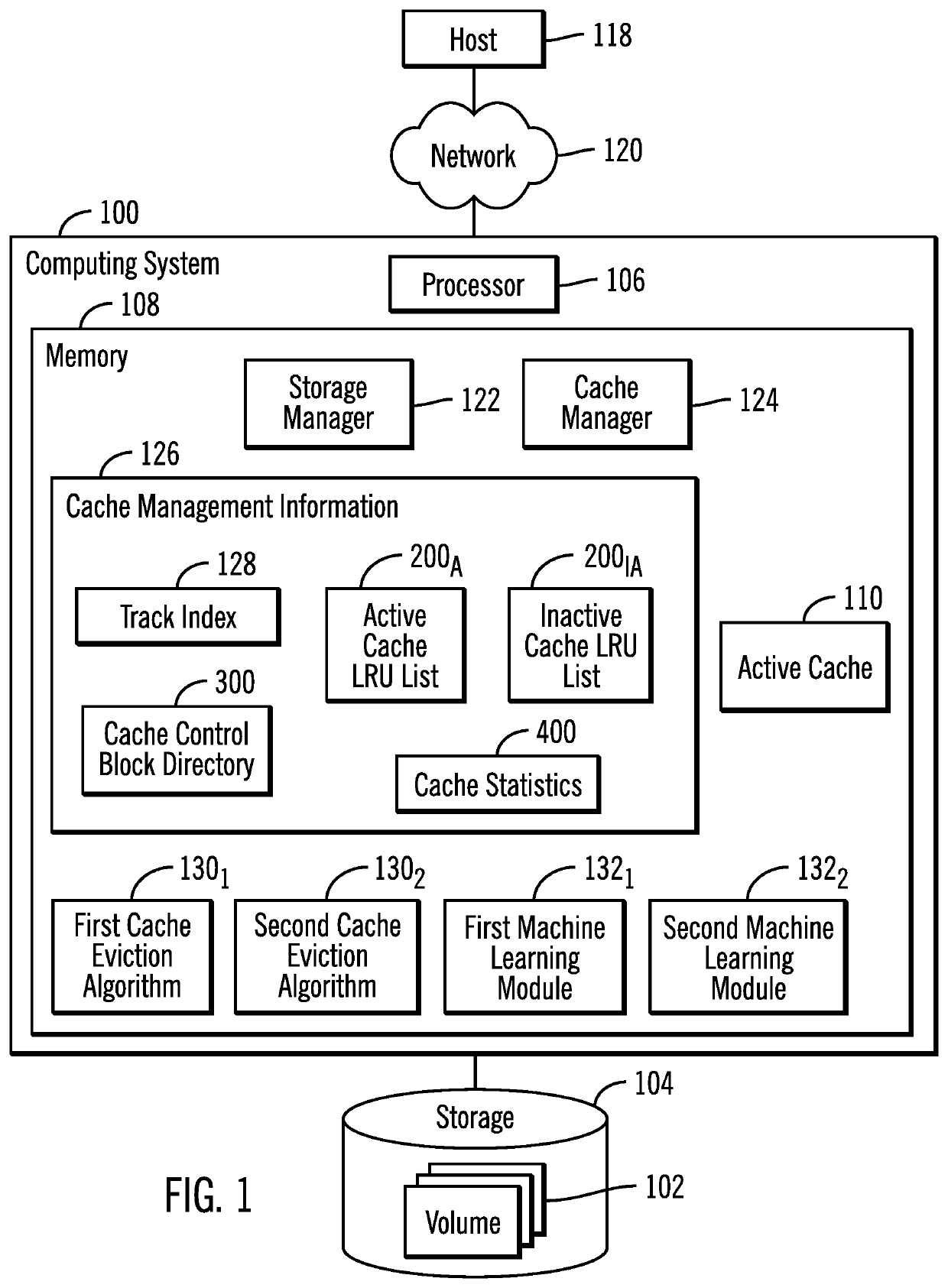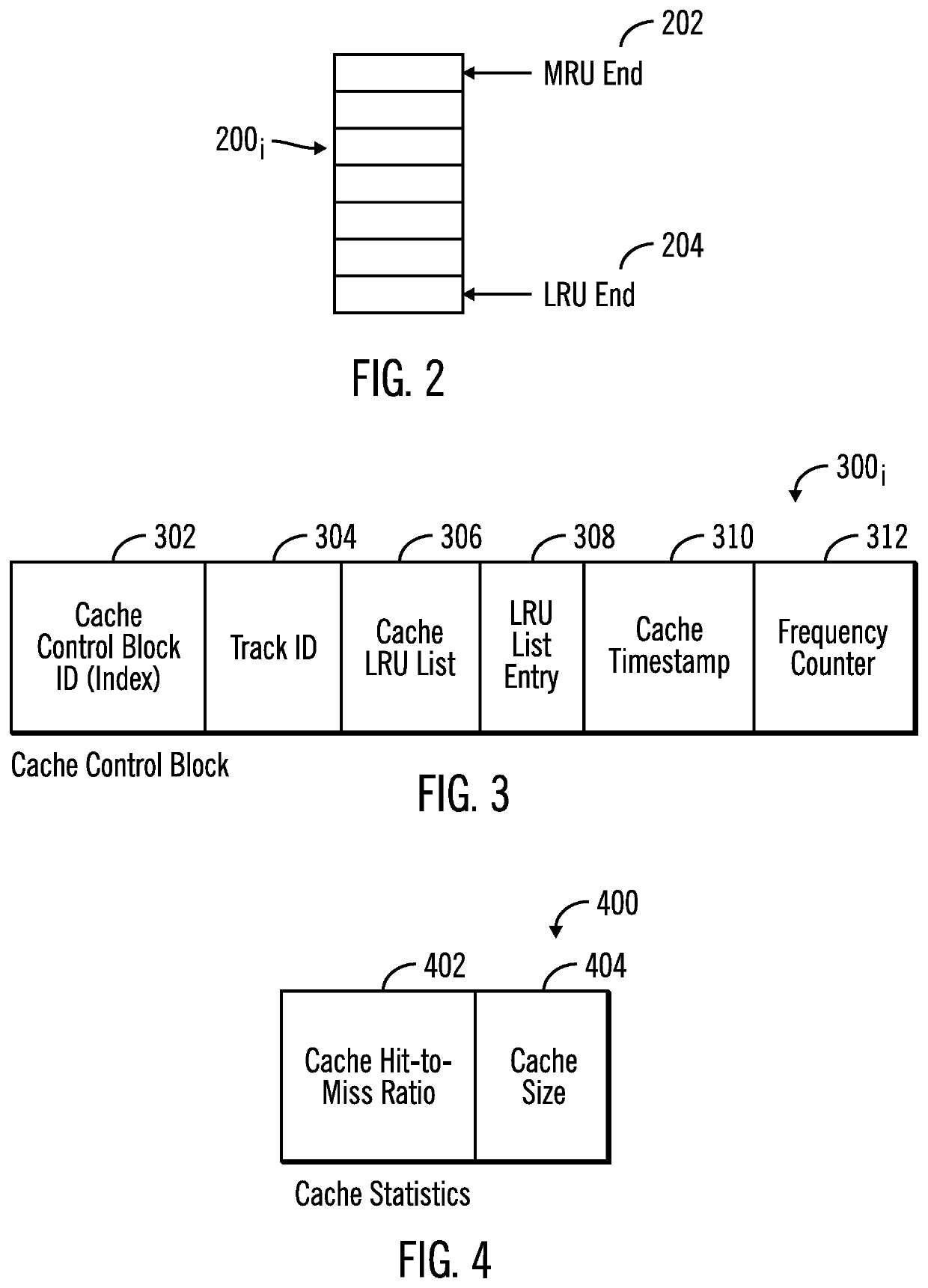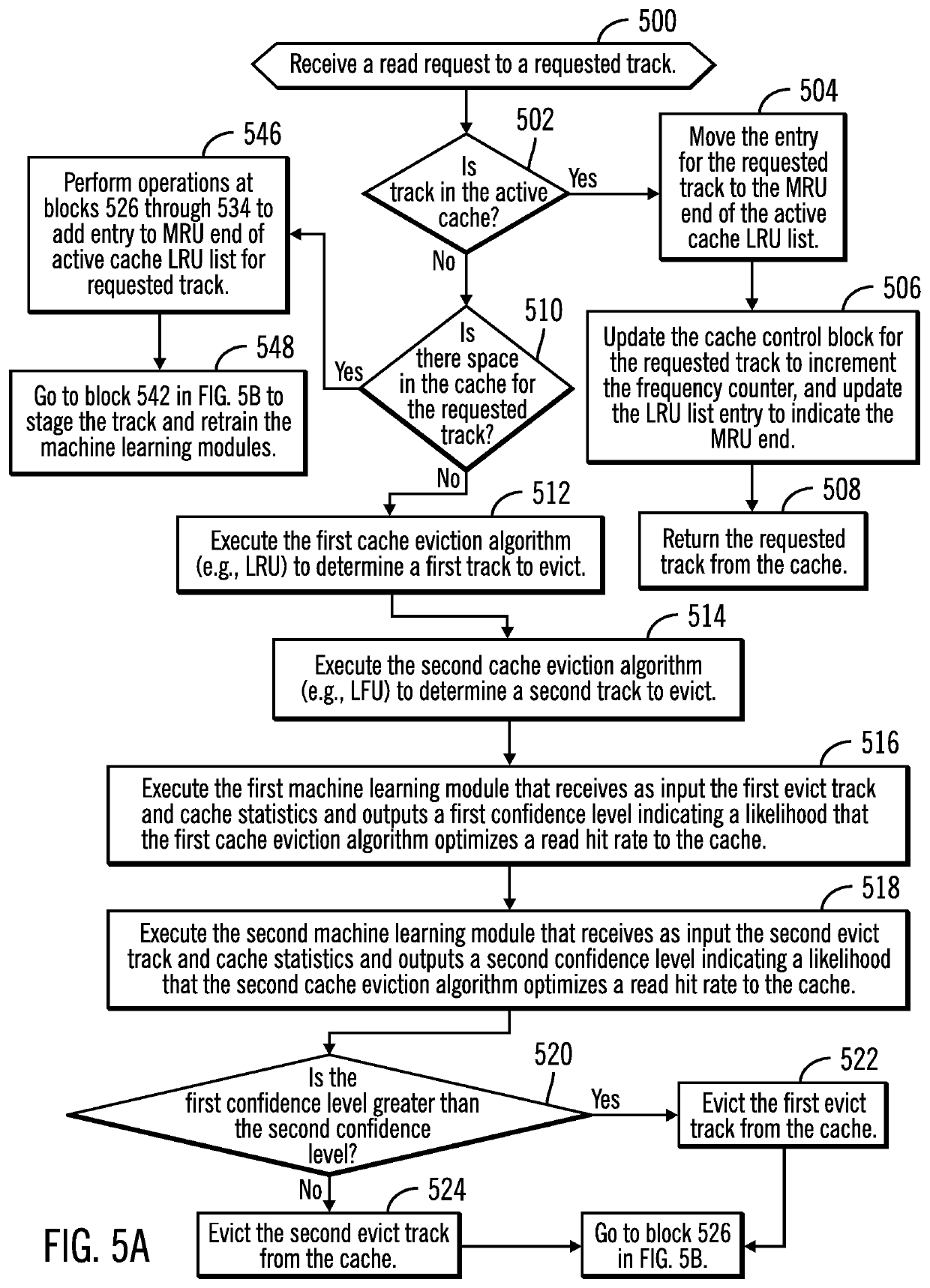Selecting one of multiple cache eviction algorithms to use to evict a track from the cache using a machine learning module
ache eviction technology, applied in the field of selecting one of multiple cache eviction algorithms to use to evict a track from the cache using a machine learning module, can solve the problems of increasing the latency of a read, and achieve the effect of reducing cache misses, reducing likelihood, and increasing likelihood
- Summary
- Abstract
- Description
- Claims
- Application Information
AI Technical Summary
Benefits of technology
Problems solved by technology
Method used
Image
Examples
Embodiment Construction
[0027]A storage controller demotes tracks from an active cache to make room to cache data for new I / O requests, e.g., read or write requests. If the data for a read request is already in the cache, i.e., a cache hit, then the requested data does not need to be staged into the cache. If the data for the read request is not in the cache, i.e., a cache miss, or if there is write data for the request, then tracks in the cache may need to be evicted from the cache to make space for the read data to stage into cache or the write data. Tracks are evicted based on cache eviction algorithms. If the cache miss rate is high, data needs to be continually staged from storage into the cache, and then new I / O requests will need to be queued until space is freed in the cache. Such queuing of I / O requests can cause severe performance problems and high response times to the queued I / O requests.
[0028]Described embodiments provide improvements to computer technology for evicting a track from a cache by...
PUM
 Login to View More
Login to View More Abstract
Description
Claims
Application Information
 Login to View More
Login to View More - R&D
- Intellectual Property
- Life Sciences
- Materials
- Tech Scout
- Unparalleled Data Quality
- Higher Quality Content
- 60% Fewer Hallucinations
Browse by: Latest US Patents, China's latest patents, Technical Efficacy Thesaurus, Application Domain, Technology Topic, Popular Technical Reports.
© 2025 PatSnap. All rights reserved.Legal|Privacy policy|Modern Slavery Act Transparency Statement|Sitemap|About US| Contact US: help@patsnap.com



